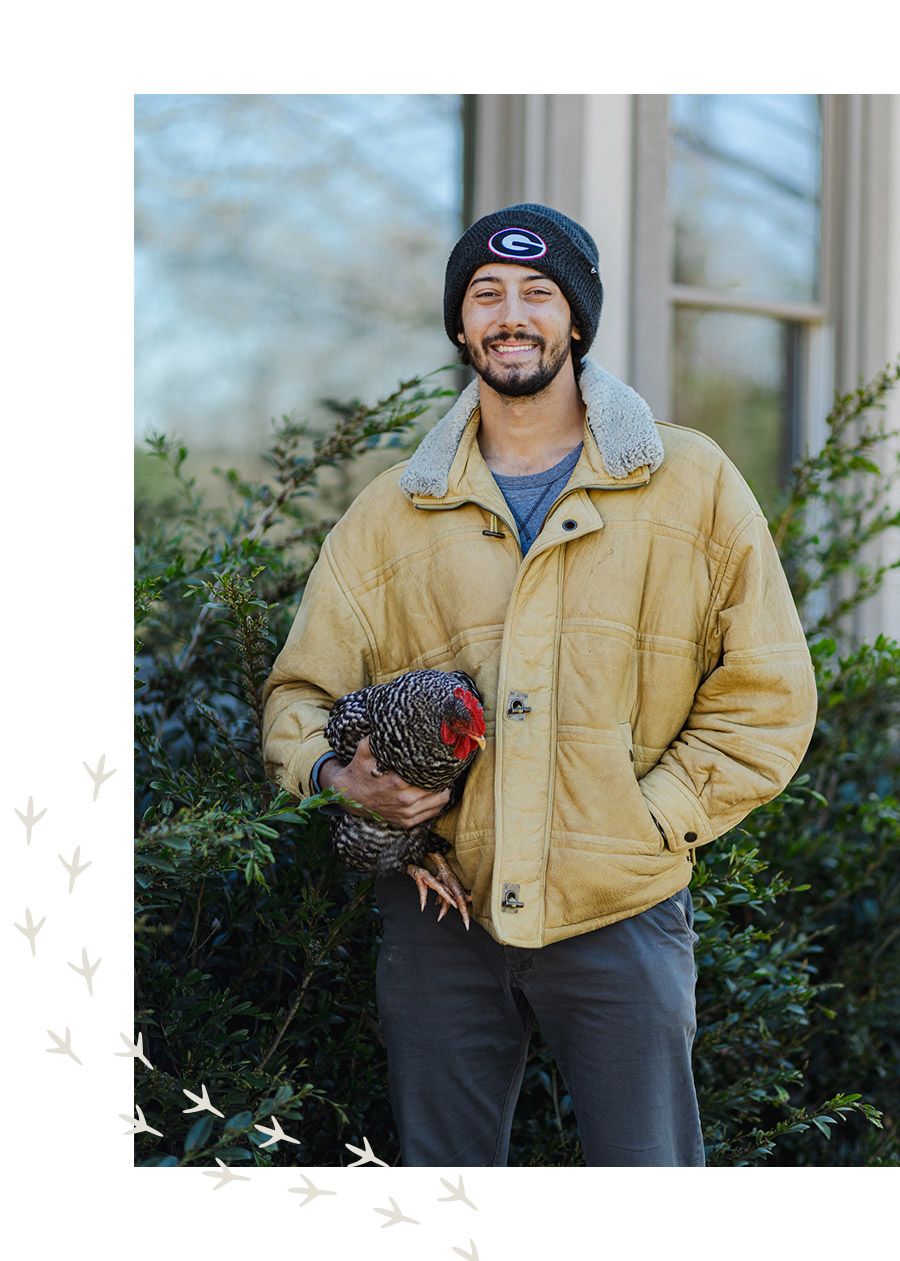Poultry in Motion
Contest-winning concept becomes viable business for alumnus who developed solar-powered, self-propelled chicken coop as a student

Chris Ayers (Photo by Sean Montgomery)
Chris Ayers (Photo by Sean Montgomery)
Chris Ayers emerged from his orange and black rough-terrain vehicle with an ear-to-ear grin.
“This is Chiktopia,” he said, sweeping his arm wide to indicate the back half of a 3,600-square-foot warehouse on his family’s farm in Ball Ground, Georgia. “This is where I manufacture and assemble the chicken coops. Everything is done entirely from over here.”
Ayers, a 25-year-old poultry science alumnus of the University of Georgia’s College of Agricultural and Environmental Sciences, is leading a charge in the poultry industry, one of the most prominent industries in the world. His company, Chiktopia, which he owns and operates alongside his father, Mat Ayers, offers innovative, automated chicken coops specifically created to seamlessly introduce sustainable, pasture-raised poultry to any farm.
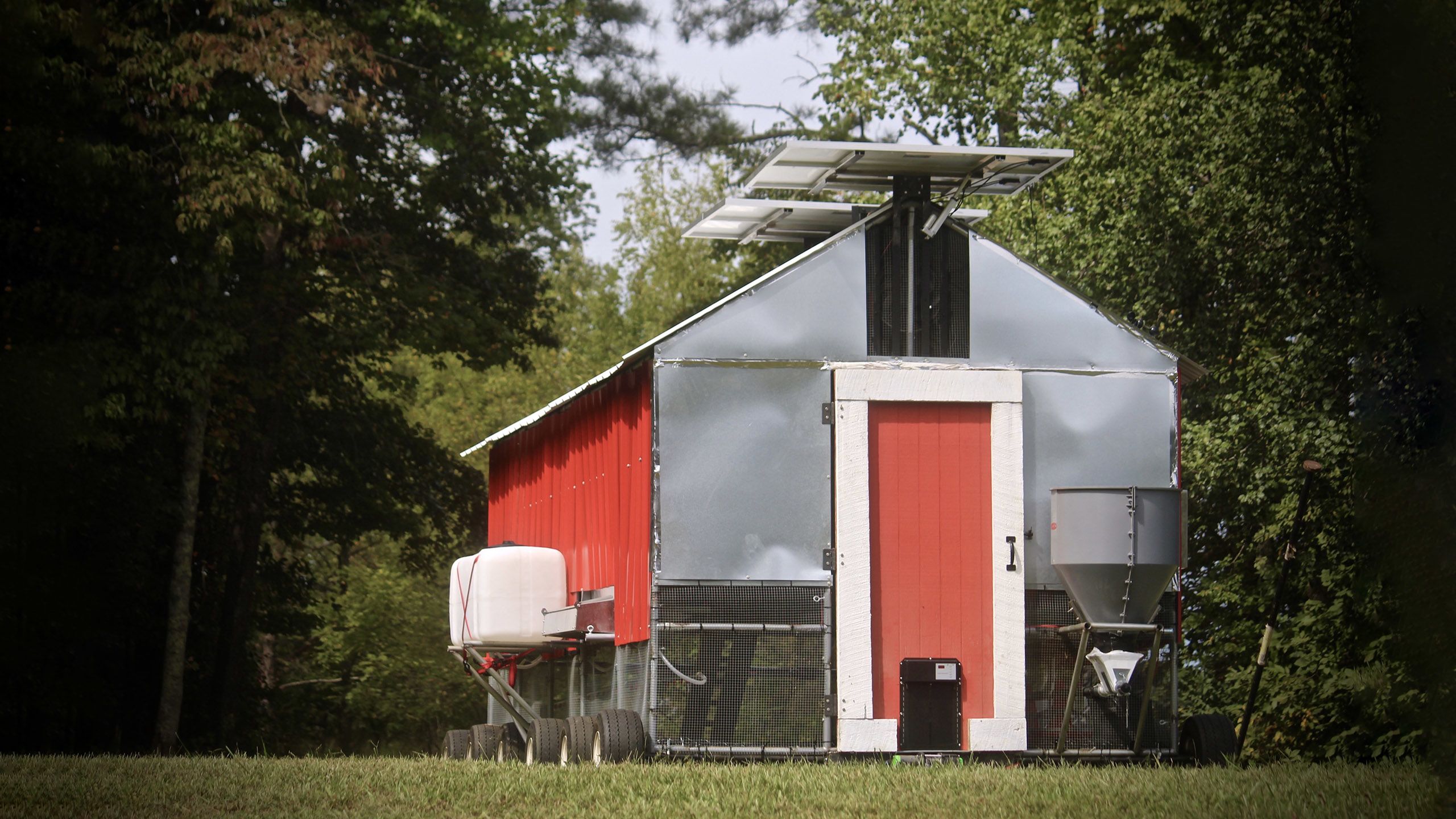
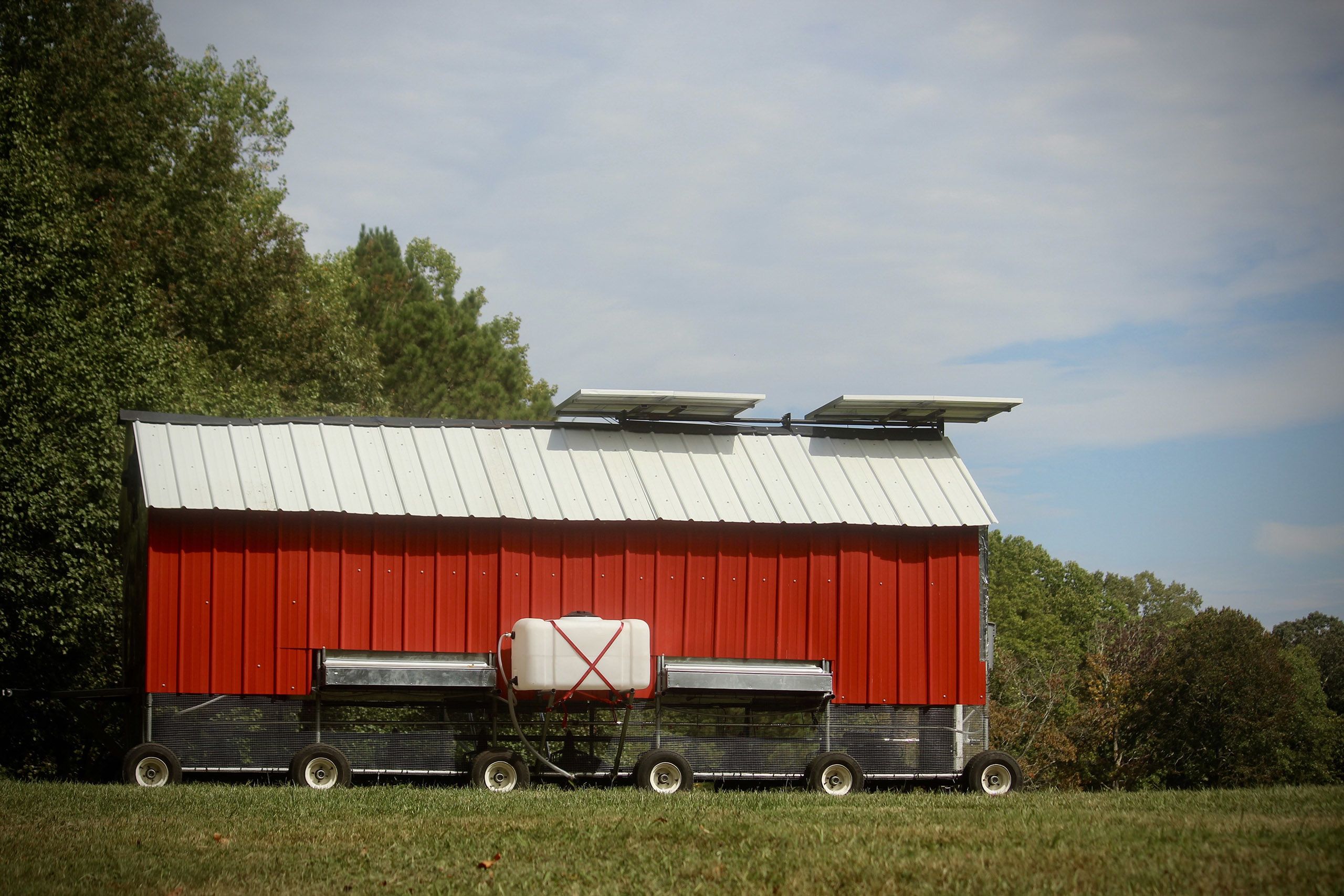
FABricate-ing success
The solar-powered, self-propelling coop system is an idea Chris Ayers spent years perfecting. Along the way, he won multiple entrepreneurship competitions to acquire resources and funding, including CAES’ 2022 FABricate Entrepreneurial Initiative.
“From a business perspective, it gave us a lot of good marketing materials and gave us pre-seed funding to develop relationships with early customers. Without FABricate, we would not have had that,” Ayers said.
Chris Rhodes, CAES director of industry partnerships and FABricate program coordinator, calls Ayers a success story for UGA’s entrepreneurship ecosystem.
“When he first came to me a couple of years ago with his idea, he didn’t have a clear sense of value for the business, or who his customers were, or even the vocabulary to talk about startups,” said Rhodes, adding that Ayers soon took full advantage of resources at CAES and the UGA Innovation District, entrepreneurship competitions and funding at Studio 225, UGA’s student entrepreneurship center.
Ayers’ success in entrepreneurial contests sparked a relationship with Keith Kelly, CAES alumnus and CEO of Kelly Products.
“We were able to set a prototype unit out on Mr. Kelly’s farm for well over a year and test it with around 200 chickens, which gave us a lot of extremely valuable data,” said Ayers. “We were able to discover a lot and accrue revenue while doing it.”
From right, Chris Rhodes presents Chris Ayers and Jeffery Whitmire of Chiktopia with the $10,000 FABricate grand prize. Chiktopia's award-winning chicken tractor has automated feeding and watering systems, temperature and humidity control, and a hydraulic lifting system to prevent damage to chicken coops and the land.
From right, Chris Rhodes presents Chris Ayers and Jeffery Whitmire of Chiktopia with the $10,000 FABricate grand prize. Chiktopia's award-winning chicken tractor has automated feeding and watering systems, temperature and humidity control, and a hydraulic lifting system to prevent damage to chicken coops and the land.
Testing and turbulence
Chiktopia’s successful trial period at the Kelly farm led to further refinement and testing of Ayers’ products, and it was not long before Ayers and Chiktopia were ready for commercial sales.
The company’s first customer was a farmer in Texas who ordered two broiler units for delivery to his farm.
Then disaster struck.
“In the middle of July, there were two tornadoes. One hit my farm and we had well over 100 trees get taken down over 4 acres worth of forest,” said Ayers, adding that one of the two units set for delivery to Texas was in the pasture, exposed to the storm. Despite the violence of the storm, the unit wasn’t affected at all.
“That gave me a lot of confidence in our product and the ability to have them placed out in pastures year-round. None of the electronic systems went down and, more importantly, the unit didn’t even move,” Ayers said.
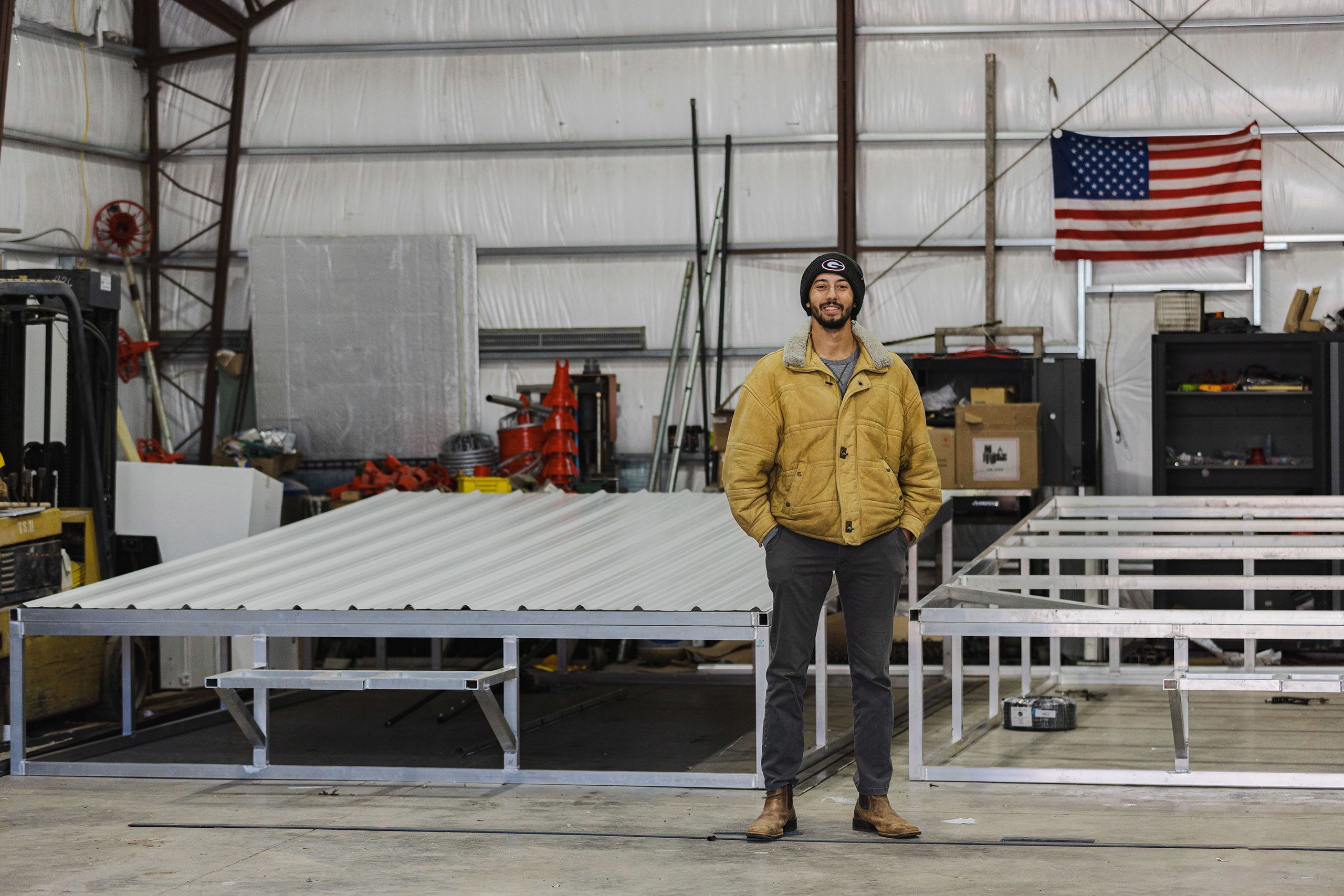
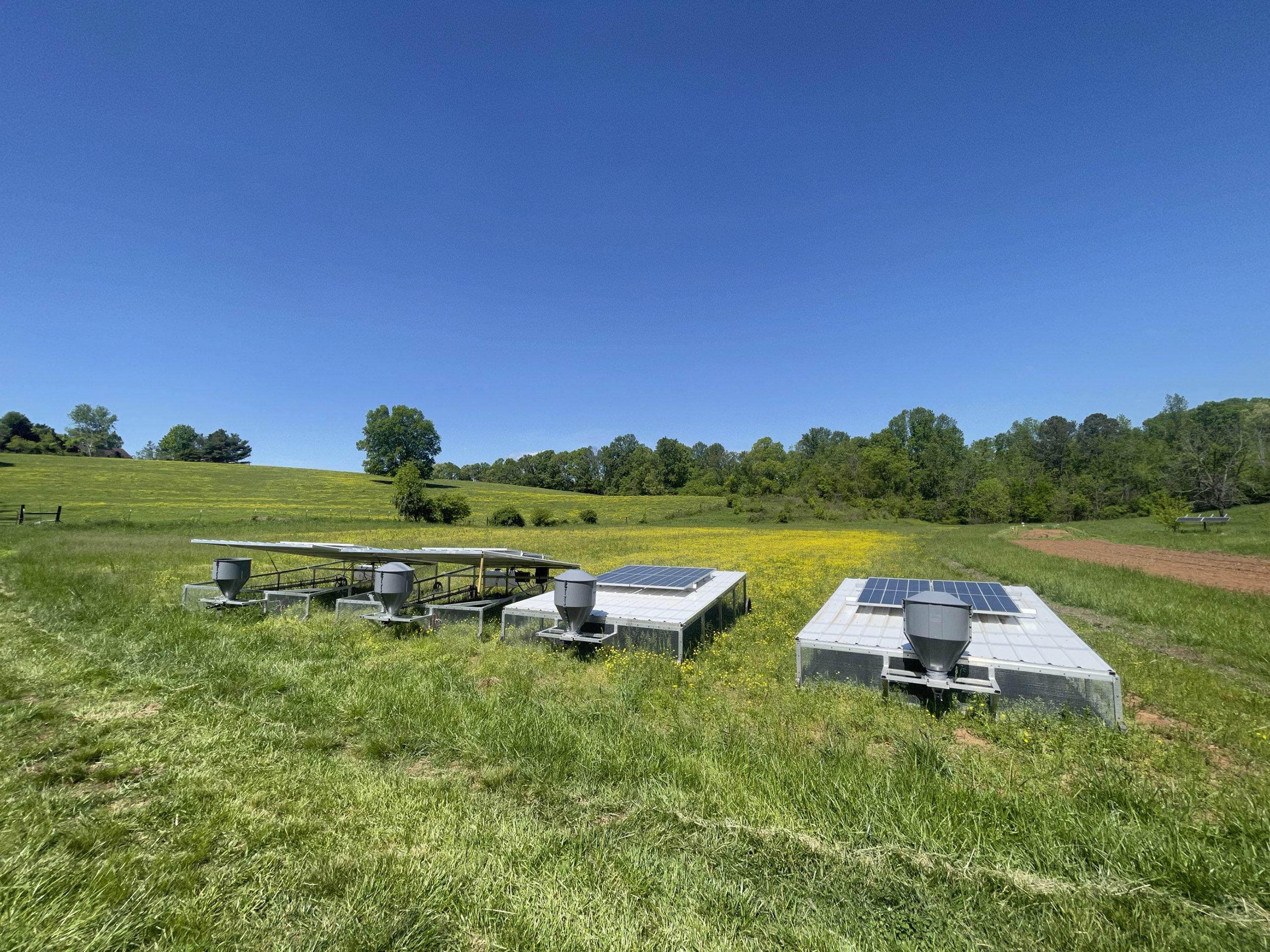
Valley of entrepreneurship
Months after successfully delivering the units to Texas, new customers began placing orders. Chiktopia was finally up and running as a commercial enterprise.
However, several major issues arose, which caused Ayers to struggle with his confidence to continue commercial operations. After losing his initial business partner, another UGA student, he was essentially on his own to fulfill multiple purchase orders.
On the brink of losing the traction he worked hard to gain, Ayers took a step back and remembered the early stages of his company that were filled with mentorship and motivation.
“Giving up is not even an option at this point,” Ayers said.
Signing a crucial contract
In August 2022, the U.S. Department of Agriculture (USDA) listed a contract seeking partners to conduct research on the effects and productivity of pasture-raised poultry, specifically with broilers. The USDA contract was a lifeline when Ayers needed funding, an increased pool of resources and additional time to strengthen the company’s research and reputation.
“I get to keep the equipment, retain the meat from the research and I get a massive boost in credibility because now I’ve got the USDA using my innovations for research,” he said. “Having that credibility is extremely important.”
Boosting the roost
The research, which began on June 1, is being conducted on a plot of land less than a mile down the road from Ayers’ family farm — a five-year land lease on a farm he plans to own one day. USDA researchers will examine soil impact, poultry efficiency and other weather-related variables, among other things.
Since graduating from UGA in May, Ayers is focused on developing commercial relationships for his company. He wants his entrepreneurship journey to inspire other students to take the same leap of faith.
“I hope that I open more eyes to the horizon where students can bridge the gap and become entrepreneurs while they are still actively enrolled as students,” said Ayers. “To go out and try to contribute to society while you’re trying to get your degree, rather than putting one on hold until the other one is done, I would love to see more students do that.”


